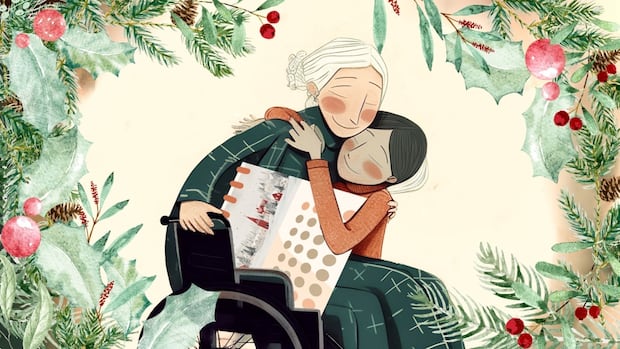In Ottawa, Nicole Robichaud, a lawyer and caregiver, shares her poignant experience with a folk art calendar that has been a cherished part of her family’s Christmas tradition for almost three decades. The calendar, a recurring gift to her mother, holds sentimental value as a symbol of joyous holiday memories from their time in Toronto.
In 2015, at the age of 68, Robichaud’s mother was diagnosed with Alzheimer’s, a challenging journey that Robichaud had witnessed before when her grandfather battled the same disease. Despite the inevitable progression of Alzheimer’s, Robichaud’s mother strove to maintain a positive outlook, even as her cognitive abilities declined over the years.
As the disease advanced, necessitating a move to a retirement home in Ottawa and eventually to a memory care floor, the folk art calendar remained a constant presence in Robichaud’s mother’s life. Despite reaching a stage where she could no longer engage with the calendar’s images, Robichaud continued the tradition of gifting it annually, finding solace in the ritual and the sense of connection it provided.
Despite the challenges of interacting with her mother in her current state of limited responsiveness, Robichaud finds purpose in sharing the calendar with her, believing that the act conveys love and preserves a link to their cherished family traditions. In a time marked by uncertainty and loss of control, the calendar serves as a beacon of comfort, hope, and a reminder of the enduring bonds that transcend physical limitations.
Robichaud’s unwavering dedication to this simple yet profound tradition reflects her belief in the power of love and spiritual connection, offering solace amidst the difficulties of navigating her mother’s Alzheimer’s journey. As she looks ahead to the new year, the act of turning the page on the calendar symbolizes a continued commitment to honoring the past and embracing the future with optimism and resilience.



